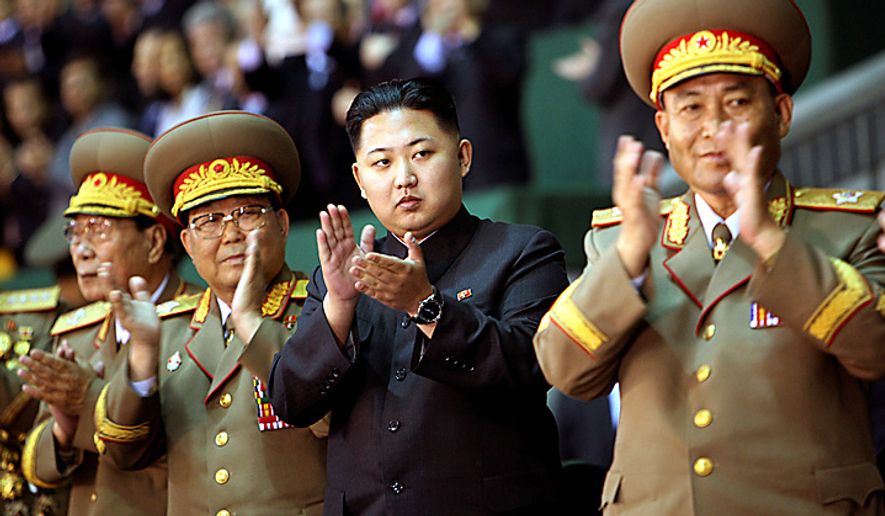A prominent Iranian dissident group released a new report Friday claiming Iran has been working with North Korean experts to deceive U.N. nuclear inspectors visiting suspect sites in Iran.
Iran’s clerical regime has been working on ways to conceal the military dimensions of its nuclear projects from the International Atomic Energy Agency (IAEA) for some time and sought the advice and expertise of North Korean consultants to do so, according to the report from the National Council of Resistance of Iran (NCRI).
The NCRI’s claim was not immediately verifiable, and the dissident group is known for its controversial history in Washington. However, the group is seen to have deep sources inside Iran’s nuclear community and its members are credited with having made game-changing revelations about Tehran’s activities in the past.
Similar NCRI claims in the early 2000s exposed the existence of Iran’s Natanz uranium enrichment facility and the Arak heavy-water plutonium facility — two operations that have been at the center of international scrutiny and distrust of Tehran during the years since then.
According to the latest report, a number of North Korean officials have set up shop in Tehran and remain there even after the signing of the nuclear agreement between the Islamic Republic and major world powers on July 14.
The North Korean visitors “have expertise in ballistic missile and nuclear work areas, particularly in the field of warheads and missile guidance,” the report reads.
“Over the past two years the North Korean teams have been sharing their experiences and tactics necessary for preventing access to military nuclear sites,” NCRI added.
The North Koreans reportedly instructed their Iranian counterparts on how to deny IAEA inspectors access to their nuclear sites and advised them to build tunnels and underground nuclear sites.
Their presence in Tehran has been kept secret with the help of the Islamic Revolutionary Guard Corps, the elite military force that serves Iran’s Supreme Leader.
The nuclear experts work in a guarded office building at the Hemmat complex and are transported to and from work in tinted-glass vehicles escorted by members of the terrorist-affiliated Quds force.
In addition, the six-man North Korean team reportedly collaborates with Nouri Industries, which builds warheads for Shabab and Ghadr missiles. Nouri also works closely with a subdivision of the Organization of Defensive Innovation and Research, also known by its Farsi acronym SPND.
The council first exposed SPND in July 2011, prompting the U.S. to place the research facility on its sanctions list as an “entity that is primarily responsible for research in the field of nuclear weapons development.”
Alireza Jafarzadeh, Deputy Director of the NCRI’s U.S. Representative Office told The Washington Time that the information uncovered in the report “underscores the need for an effective verification and inspection regime to prevent the Iranian regime, with a two-decade-long history of deception and duplicity, from hiding its illicit activities and sanitizing the suspect sites. Anything less, prompted by political expediency, would be a recipe for disaster and only embolden the regime to continue to march towards nuclear weapons.”
NCRI claimed their information was obtained through the network of the People’s Mojahedin of Iran (MEK), a left-leaning Iranian opposition movement that has facilitated bombing campaigns against the Iranian government and was listed by the State Department as a terrorist organization.
The report comes a day after President Obama gained the 34th critical vote needed to suppress a Congressional resolution to block the deal, with Maryland Democratic Sen. Barbara Mikulski pledging to uphold the deal.
Under the nuclear agreement, Iran will dismantle its nuclear capabilities in exchange for sanctions relief from the U.S. and other world powers. The IAEA, a U.N. watchdog, has been charged with carrying out timely inspections of Iran’s nuclear facilities to ensure the Islamic Republic upholds its end of the deal.
• Kellan Howell can be reached at khowell@washingtontimes.com.




Please read our comment policy before commenting.